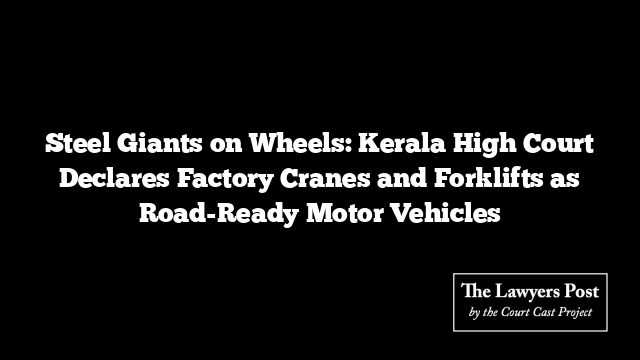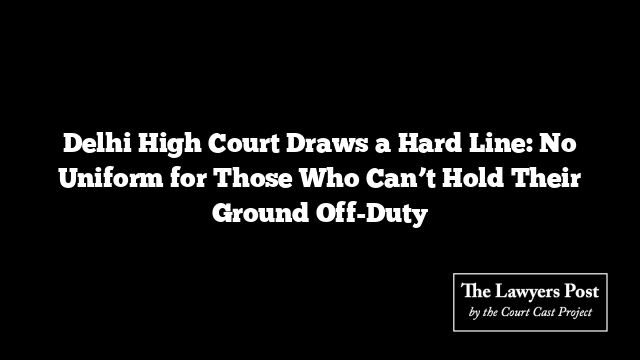In a verdict that rattles the walls of industrial sheds across Kerala, the High Court has ruled that those lumbering forklifts and towering cranes tucked deep inside factory yards are not mere in-house workhorses—they are, in the eyes of the law, full-fledged motor vehicles.
The Court’s logic was crisp: if a machine can roll onto a public road, then the Motor Vehicles Act sees it as a motor vehicle, whether or not it ever actually does. Roadworthiness, not road history, is the decisive test.
This ruling came while examining the case of a timber company in Ernakulam that used two forklifts and a crane exclusively within its six-acre compound. These machines, the company argued, were factory-bound tools inspected as industrial machinery under the Factories Act. They had never seen the outside world and were never meant to.
But the State countered that capability—not intention—is what matters. If a vehicle has wheels, an engine, and the power to move beyond factory gates, then the law expects it to be registered, insured, and taxed. Even the factory itself, the State argued, counts as a “public place,” given that workers and visitors enter it regularly.
The Court leaned firmly toward the State’s view. It unpacked the definition of motor vehicles under the Motor Vehicles Act, revisited amendments to the Central Motor Vehicles Rules, and noted that Construction Equipment Vehicles—like forklifts and cranes—may be meant for off-road work, but are nevertheless capable of movement on public roads. That capability was enough to bring them under the law’s umbrella.
Only machines truly imprisoned within enclosed premises—those not merely unused on public roads but physically incapable of ever reaching one—would escape registration.
Once deemed motor vehicles, tax liability followed automatically, the Court held. Registration under Section 39 of the Motor Vehicles Act was mandatory; taxes under the Kerala Motor Vehicles Taxation Act became unavoidable.
With these principles in place, the petition seeking exemption was brushed aside, and the factory’s silent steel beasts now stand obligated to bear number plates and insurance like any other vehicle that roams Kerala’s roads.





